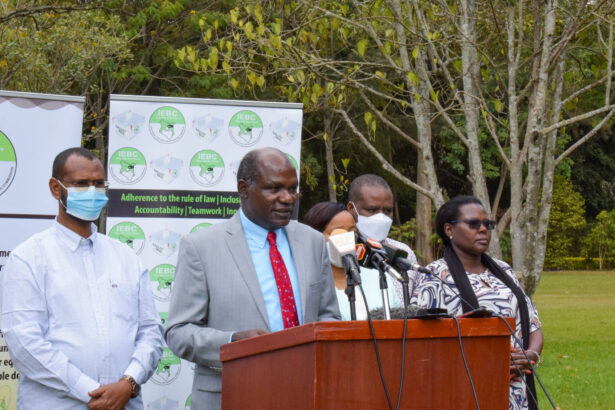The Independent Electoral and Boundaries Commission (IEBC) has said it may be forced to use manual voter registers in more than 11,000 polling stations.
Appearing before the Justice and Legal Affairs Committee (JLAC) on Wednesday, March 16, IEBC Director of Legal Affairs Chrispine Owiye said that at least 11,000 polling stations lack 3G mobile network coverage to facilitate the electronic transmission of results.
The electoral agency further proposed fundamental changes in managing results transmission to give precedence to the manual transmission of results in affected regions.

“The law requires the returning officers to transmit the results electronically to the national tallying center; if there is no network, as it is at the moment, it means the officer cannot move to a nearby place with network or the nearest polling station to declare the results since he will be committing an illegality,” he said adding that the agency needs a complementary system.
IEBC defended itself against concerns that the Election Laws (Amendment) Bill, 2022 seeks to scrap live streaming of election results and return to the manual voting system.
He clarified that the Bill proposes a complementary mechanism for result transmission to address instances where transmission of results is not possible because of poor internet coverage.
In the 2017 General Election, the IEBC faced similar issues with low network coverage, with 27 percent of polling stations lacking 3G or 4G coverage.
However, IEBC Chairman Wafula Chebukati assured all aspirants that the commission will ensure a free and fair election even as it lacks network coverage in some geographical areas.
Some of the affected areas include that of ODM leader Raila Odinga’s Kisumu, President Uhuru Kenyatta’s Kiambu as well as Murang’s town.
